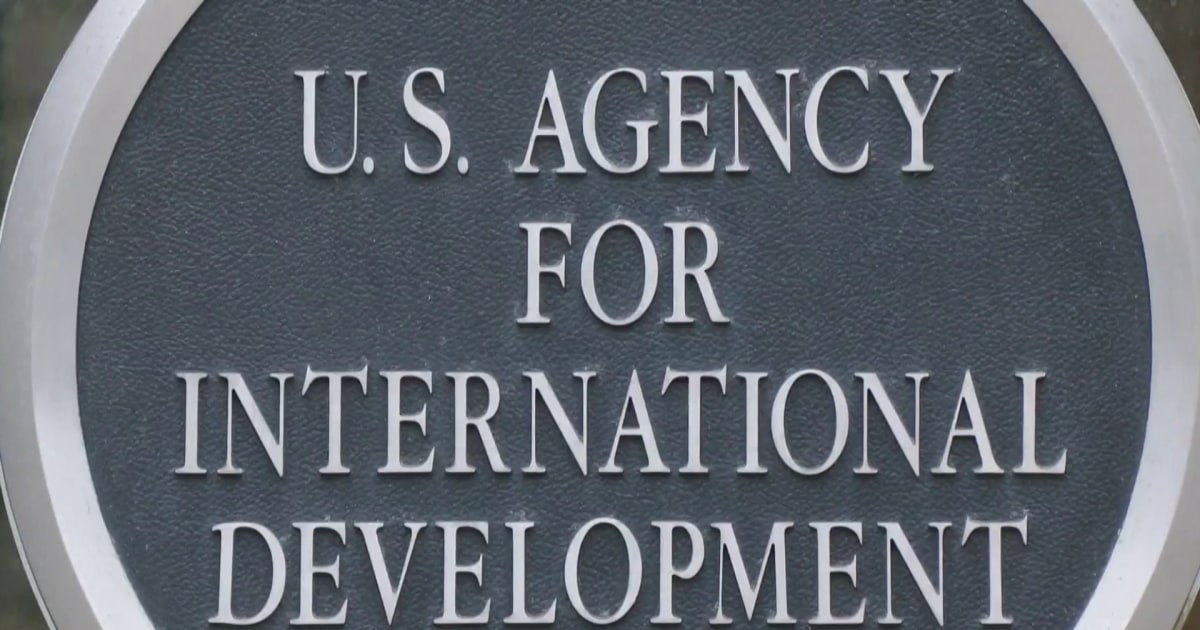Unraveling USAID: Understanding Its Role Amid Trump’s Budget Cuts
Amidst swirling budget debates, the United States Agency for International Development (USAID) finds itself in the spotlight as President Trump targets the foreign assistance agency for potential shutdown. As discussions about fiscal responsibility and national interests take center stage, it’s crucial to unravel the complexities surrounding USAID and its pivotal role in global development. This article delves into the implications of proposed dismantling and examines why USAID matters in today’s interconnected world.
What is USAID and Its Mission?
USAID was established in 1961, and its mission is straightforward yet profound: to promote and demonstrate democratic values abroad and advance a free, peaceful, and prosperous world. The agency focuses on various development sectors, including health, education, economic growth, and humanitarian assistance. USAID operates in over 100 countries, providing critical support during crises and working towards long-term solutions to global challenges.
The Importance of USAID
USAID plays a crucial role in fostering international relations, enhancing global stability, and supporting U.S. interests abroad. Here are some key aspects of its importance:
- Humanitarian Aid: USAID is often the first responder to natural disasters and humanitarian crises. Its rapid response capabilities save lives and provide essential support to affected populations.
- Global Health Initiatives: Through programs like PEPFAR (President’s Emergency Plan for AIDS Relief), USAID has significantly contributed to combating infectious diseases, improving maternal and child health, and enhancing healthcare systems in developing countries.
- Economic Development: By promoting economic growth, USAID helps create jobs, foster trade, and reduce poverty. This economic stability benefits both recipient countries and the U.S. economy through increased markets for American goods.
- National Security: Investing in development can prevent conflict and instability, thereby promoting U.S. national security interests. Countries with strong institutions and healthy economies are less likely to become breeding grounds for extremism.
The Controversy Surrounding USAID Funding
As President Trump proposed significant budget cuts to USAID, debates about the agency’s effectiveness and necessity intensified. Critics argue that slashing funding could hinder the U.S.’s ability to respond to global crises while supporters claim that such reductions could redirect resources to domestic needs. This dichotomy raises several questions about the future of USAID and the broader implications of reducing foreign aid.
Arguments for Cutting USAID Funding
Proponents of budget cuts often cite the following reasons for their stance:
- Fiscal Responsibility: Advocates argue that taxpayer dollars should prioritize domestic issues, especially in areas like education, infrastructure, and healthcare.
- Effectiveness Concerns: Some believe that foreign aid has not always led to measurable improvements and that it often falls short of its intended goals.
- National Prioritization: With a focus on “America First,” critics of USAID contend that the U.S. should prioritize its own citizens before investing in foreign assistance.
Arguments Against Cutting USAID Funding
Conversely, opponents of the cuts present compelling reasons for maintaining or even increasing USAID’s budget:
- Global Leadership: The U.S. has historically been a leader in global development. Reducing aid could undermine its influence and credibility on the world stage.
- Long-Term Investments: USAID’s work is often about long-term solutions. Cutting funding now could lead to more significant challenges down the line, including increased migration and instability.
- Humanitarian Obligation: There is a moral imperative to assist those in need, particularly in times of crisis. The U.S. has a longstanding commitment to humanitarian principles.
The Potential Impact of USAID Cuts
Should the proposed budget cuts take effect, the ramifications could be profound, affecting both global communities and the U.S. itself. Here’s what could happen:
Disruption of Essential Services
Many countries depend on USAID for crucial services such as healthcare, education, and food security. A reduction in funding could lead to:
- Increased rates of disease and mortality in vulnerable populations.
- Educational setbacks for children in developing nations.
- Worsening humanitarian crises as emergency response capabilities are diminished.
Strained International Relationships
The U.S. has built significant goodwill through its foreign aid programs. Cutting funding could strain relationships with allies and partner nations, leading to:
- Increased anti-American sentiment in regions that rely on U.S. support.
- Challenges in diplomatic negotiations that often hinge on aid and development promises.
- Loss of influence in international organizations and humanitarian efforts.
Domestic Consequences
Interestingly, cuts to USAID could also have repercussions at home. For instance:
- Job losses in sectors related to international development, including non-profits and NGOs that rely on USAID funding.
- Increased pressure on domestic social services as instability abroad may lead to greater numbers of refugees and migrants seeking asylum in the U.S.
Conclusion: The Future of USAID
As we navigate the complexities of global development and foreign policy, the future of USAID hangs in the balance. It is vital to consider not just the immediate fiscal implications, but also the long-term impacts on global stability, humanitarian needs, and U.S. interests. A robust, well-funded USAID can serve as a crucial tool for promoting peace, prosperity, and goodwill around the world. As such, the discussions surrounding its funding deserve careful consideration and a broader understanding of the agency’s importance in a rapidly changing global landscape.
In summary, USAID stands not just as a foreign assistance agency but as a vital contributor to the United States’ role in fostering a better world. The ongoing debates around its funding and future reflect larger questions about national priorities and global responsibility. As these discussions continue, it remains essential to advocate for a balanced approach that recognizes the interconnectedness of our global community.
See more BBC Express News

